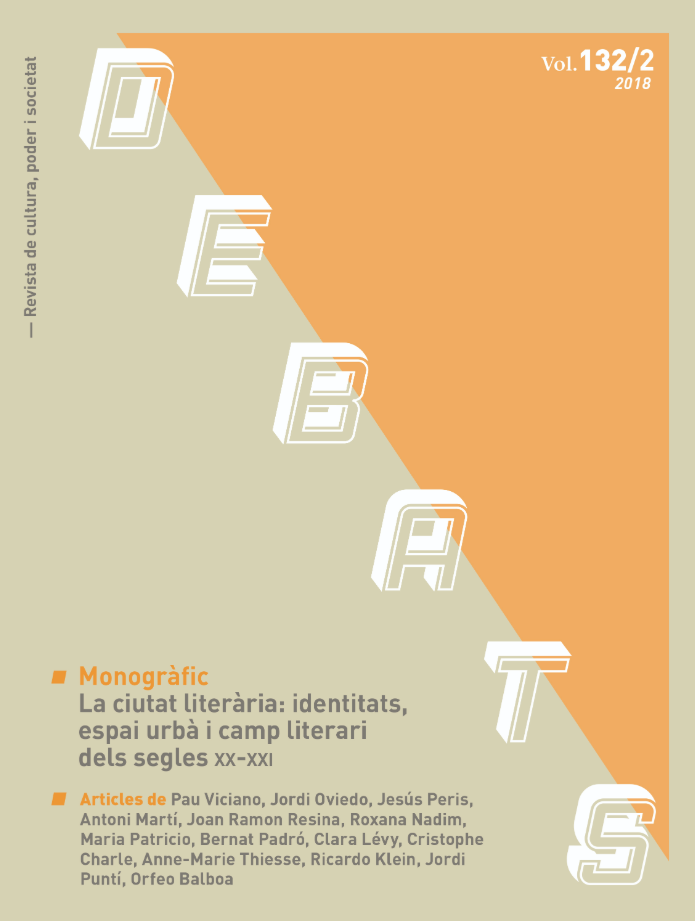An enchanted Barcelona mirrored in fiction
Keywords:
burguesía, cronotopo, periodismo, Eixample, periferia, franquismo, desfamiliarización, mitificación.Abstract
The novel is a product of the bourgeoisie’s interest in the empirical mastery of reality. From the start, writing on reality took a forking path. On one side, it became journalism; on the other, it took the form of the novel. But whereas journalism intervenes in the reality that it mediates, the novel focuses on the characters’ subjectivity. Journalism seeks to capture facts in their evanescence, while the novel lingers on the details of the milieu and the psychological folds of the action. Such attention to the temporality of events privileges urban space. As is the case in other literatures, the convergence of novel, journalism, and city is amply represented in Catalan novels, where Barcelona is the ostensible subject and the action a pretext for the author’s interest in minuting the broad facts of urban life. A significant number of contemporary novels about Barcelona use places and scenes that were previously mythologized. Their authors show fondness for a narrow strip of history covering about a century and a half. Locked within these temporal limits, the Catalan novel evinces little capacity to generate new myths. Neither the chronotope of the mythologized Barcelona of the 1980s nor those of the Rose of Fire or of the city under the dictatorship are of any use for the Barcelona that is now recovering from the deep economic crisis of the 2010s and leading the greatest political crisis of the post-Franco state. Entangled in historicism and in the cult of modernity, the novel is still seeking the narrative paradigm of the present time.Downloads
Downloads
Published
How to Cite
Issue
Section
License
Without prejudice to the provisions of article 52 of Spanish Law 22/1987 of November 11 on Intellectual Property, BOE (official state bulletin) of November 17, 1987, and pursuant to said legislation, the author(s) surrender(s) free of charge its rights of edition, publication, distribution and sale of the article, for its publication in Debats. Journal on Culture, Power and Society.
Debats. Journal on Culture, Power and Society is published under the Creative Commons license system in accordance with the «Recognition - Non-Commercial (by-nc) modality: The generation of derivative works is permitted provided that commercial use is not made. Nor can the original work be used for commercial purposes».
Thus, when the author submits his/her contribution, he/she explicitly accepts this assignment of publishing and publishing rights. Authors also authorize Debats. Journal on Culture, Power and Society to include their work in an issue of the journal to be distributed and sold.











